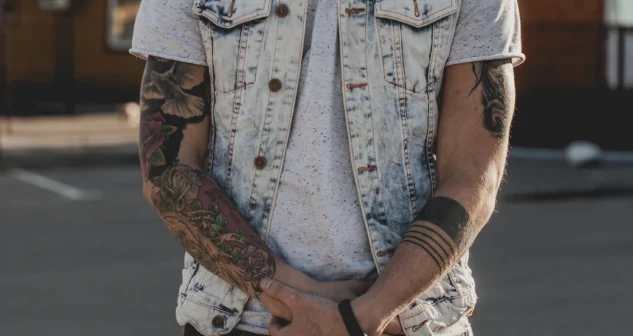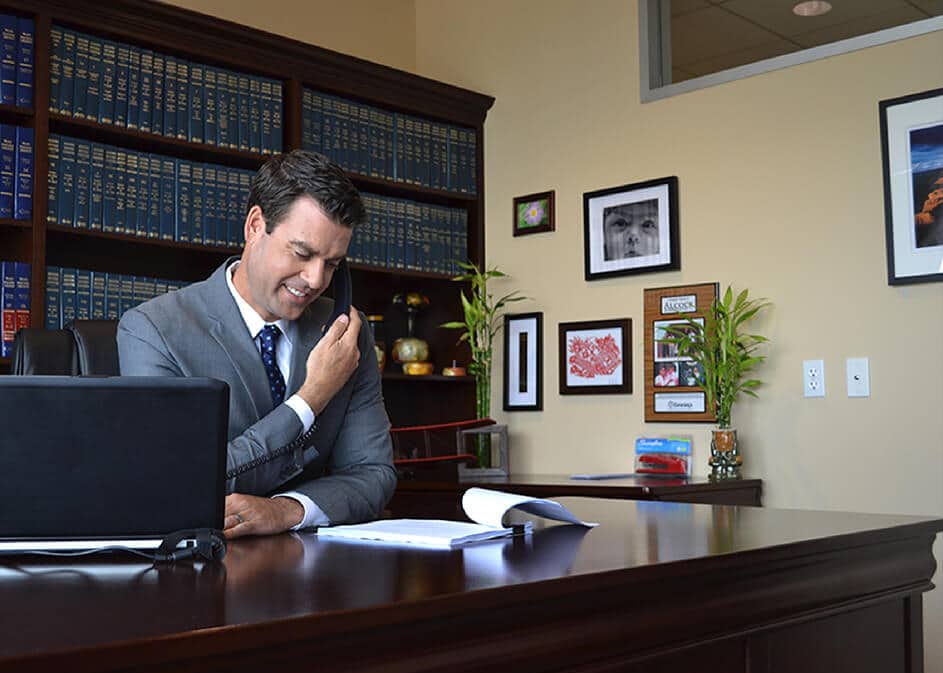Do Tattoos Affect Immigration Chances? Here’s What You Need to Know

Tattoos have become a popular form of self-expression. However, when it comes to immigration, can cause unexpected problems. Some tattoos can actually affect your chances of getting a green card in the United States. Let’s dive into the topic “how do tattoos affect immigration” and learn why these two are more connected than you might think.
The Link Between Tattoos and Immigration
The U.S. State Department has denied some immigrants green cards because of their tattoos. This issue has been particularly noted among Latin American immigrants. Since 2006, dozens of applicants have been denied green cards partly because officials believed their tattoos indicated a connection to criminal gangs.
Is Tattoo a Problem for Visa Applicants?
Many tattoos are linked to organized crime groups, especially in Latin American countries. Because of this association, U.S. immigration officials might suspect that a person with certain tattoos has ties to criminal activities. This suspicion can lead to the denial of a green card application on national security grounds. In fact, the State Department denied 82 visas in 2010 due to suspected ties to organized crime, up from just two denials in 2006.
Are Tattoos a Valid Reason for Green Card Denial?
This brings us to a critical question: Is having a tattoo a valid reason to deny someone a green card?
The Assumption of Guilt
While some tattoos are indeed linked to gangs, not all tattoos have this connection. Many people get tattoos for personal or cultural reasons unrelated to criminal activities. However, U.S. immigration officials sometimes reject applications based on the assumption that certain tattoos indicate gang affiliation, even without concrete evidence. This practice has led to accusations of unfairly labeling individuals as criminals and denying their green card applications.
Denying someone a green card based solely on a tattoo can be seen as an overreach, especially when there is no solid evidence of gang affiliation. Balancing both of these aspects is a challenging task for immigration officials.
How Does a Tattoo Affect Visa Applicants?
For immigrants, the impact of having a tattoo can be profound. Consider the case of a Mexican immigrant who spoke to the Wall Street Journal. He got his tattoos because he liked their appearance, not because he was part of a gang. Yet, when he went to Mexico for an interview with American consular officials, his reentry to the U.S. was denied due to his tattoos.
Stories like this highlight the real-life consequences of how tattoos can impact immigration processes and can become a significant obstacle in an immigrant’s journey to obtaining a green card. This impact extends far beyond mere aesthetics and touches on crucial aspects of their lives, such as:
Family Reunification
Tattoo problems in visa applications can lead to the separation of families. Many immigrants seek green cards not just for themselves but to join loved ones already residing in the U.S. When a tattoo raises suspicions of gang affiliation, it can lead to the denial of an immigrant visa or USA green card application, resulting in prolonged or indefinite separation from family members.
Employment Opportunities
A green card denial based on tattoo-related suspicions can hinder this goal. Without legal residency status, immigrants may be unable to work legally in the U.S., limiting their job prospects to low-paying, under-the-table jobs that do not provide security or benefits. Even for those who manage to obtain a work visa or temporary employment authorization, tattoos can still pose challenges. Some employers may harbor biases against visible tattoos, particularly those that resemble gang symbols, affecting hiring decisions.
Legal and Financial Strain
Appealing a green card denial due to tattoos can be lengthy, complex, and costly. Immigrants often need to hire specialized green card attorneys to navigate the appeals process, which can involve gathering evidence to prove that their tattoos are not gang-related. This legal battle can drain financial resources and take years to resolve, during which the immigrant’s life remains in uncertainty.
The Visa Process and Tattoo Scrutiny
The U.S. State Department has stated that they look at tattoos as possible indicators of gang affiliation during the visa process. This scrutiny is part of broader efforts to maintain national security and public safety. Tattoos associated with known gangs or criminal organizations can raise red flags during the review process.
However, officials also claim that tattoos alone do not determine the outcome of a visa application. The presence of a tattoo might prompt further investigation, but it should not be the sole reason for denying a green card. This means that while tattoos can complicate the process, they are one of many factors considered.
Comprehensive Evaluation
When assessing a visa application, immigration officials conduct a comprehensive evaluation. This includes looking at the applicant’s criminal history, employment record, family ties, and overall character. Tattoos may trigger additional questions or investigations, but they are not the final deciding factor. Officials are expected to base their decisions on a holistic view of the applicant’s background and intentions.
Mitigating Concerns
Applicants with problematic tattoos can take proactive steps to mitigate concerns. This could involve providing context for their tattoos, such as explaining their personal or cultural significance. In some cases, affidavits from community leaders, employers, or family members can help clarify that the tattoos are not related to criminal activity.
Other Possible Reasons for Immigrant Visa Denial
While tattoos can raise concerns, there are several other valid reasons for USA a green card in the USA. Understanding the reasons behind these denials can help applicants avoid common pitfalls and ensure their applications are as strong as possible.
Criminal Activity
One of the most straightforward reasons for green card denial is a criminal record. Committing crimes, especially serious offenses, can lead to denial or revocation of a green card. Immigration laws are strict regarding criminal activity, as the U.S. aims to protect its citizens from potential harm. Applicants with a criminal history must disclose this information and may need to provide evidence of rehabilitation or mitigating circumstances.
Political Subversion
Engaging in politically subversive activities can also affect your application. The U.S. government is cautious about admitting individuals who may pose a threat to national stability or engage in activities that undermine the political system. This includes involvement in organizations or movements that advocate for the overthrow of the government or engage in violent protests. Applicants must ensure they have no ties to such activities, as this can be a significant red flag during the review process.
Incomplete Applications
Submitting an incomplete application is another common reason for denial. Immigration forms require detailed information, including addresses for the past five years, employment history, and family background. Leaving out important information or failing to provide required documentation can result in a denial. It is crucial for applicants to double-check their forms and ensure all sections are completed accurately and thoroughly.
Lying on Forms
Providing false information on government forms and applications is a serious offense that can lead to denial or revocation of a USA green card. This includes lying about criminal history, marital status, employment, or any other critical details. Immigration officials conduct thorough background checks, and discrepancies can lead to accusations of fraud. Honesty is paramount, and applicants must provide truthful and accurate information throughout the process.
Health-Related Grounds
Health-related issues can also be a reason for denial. Certain communicable diseases, mental health conditions that pose a threat to oneself or others, and lack of required vaccinations can impact an application. Applicants may need to undergo medical exams and provide proof of good health to satisfy these requirements.
Financial Stability
Demonstrating financial stability is essential. Applicants must show they can support themselves and their families without relying on public assistance. This often involves providing proof of employment, income, and financial resources. Lack of evidence of financial stability can lead to denial, as the U.S. aims to ensure that immigrants contribute positively to the country’s economy.
Security Threats
Any indication that an applicant poses a security threat can lead to denial. This includes ties to terrorist organizations, involvement in espionage, or other activities that may threaten national security. Immigration officials are vigilant about these threats and take any such indicators very seriously.
Legal Help for Tattooed USA Green Card Applicants
Given the potential complications, many tattooed green card applicants are seeking legal help. Lawyers who specialize in immigration law are well-versed in the nuances of green card and U Visa processes. They can provide essential guidance on how to present an application that addresses potential tattoo problems in visa applications. This might involve gathering evidence to prove that a tattoo is purely decorative or culturally significant rather than gang-related.
The Appeals Process
When a green card application is denied, applicants have the right to appeal the decision. This can be a lengthy and complex process, but it is often the only way to overturn an unfair denial. Applicants are therefore advised to enlist the help of lawyers with a proven track record of success to improve their chances of a positive outcome.
Fighting for Fair Treatment
Lawyers argue that U.S. immigration officials should not assume guilt based on tattoos alone. They fight to ensure that each case is judged fairly and on its individual merits. This legal support can be crucial for applicants who face the risk of being unfairly labeled and denied a green card.
Individual Assessment
Immigration attorneys can help ensure that each case is evaluated on its own merits. This involves presenting evidence that shows the applicant’s tattoos are not linked to criminal activity. Lawyers may also gather character references, provide proof of employment, and highlight community involvement to demonstrate the applicant’s positive contributions to society.
Challenging Biases
Attorneys also work to challenge and change any inherent biases in the immigration system. They argue that tattoos should not be used as a primary basis for suspicion unless there is concrete evidence to support claims of gang affiliation. By pushing for fair treatment, lawyers help to protect immigrants’ rights and ensure a just immigration process.
Protecting the Rights of Immigrants
Navigating the complex and often daunting U.S. immigration process can be particularly challenging for people with tattoos, as they can be misinterpreted and lead to potential complications. However, while tattoos might raise red flags, they should not be the sole reason for denying an application. Immigrants need to be aware of this issue and seek legal help if needed.
At Alcock & Associates, our goal is to achieve a just and fair outcome for every client. With a deep understanding of the nuances of immigration law, our team is well-equipped to provide the guidance and support that tattooed green card applicants need. Our immigration lawyers work tirelessly to gather evidence, present compelling arguments, and ensure that each client’s case is evaluated fairly and on its individual merits. Let us help you advocate for your rights and build a secure future in the United States.

REPRESENTATION YOU DESERVE
Here at Alcock and Associates our team and staff are dedicated to helping and representing YOU. The first step is to understand your case. We will take the time to get to know you and your legal situation so that we are best able to answer all of your questions. After your initial consultation with our attorneys, you will know what you are facing and what can happen to your case.
EVERY CONSULTATION IS COMPLETELY FREE AND COMPLETELY CONFIDENTIAL.
Top Rated Phoenix Attorneys






It is essential that you are aware of our website policies, as they detail how we protect your data and ensure transparency in the use of your information. Please read our Privacy Policy.
